OXFORD 6
Dr Tessa Daffern



Name:




























Class:



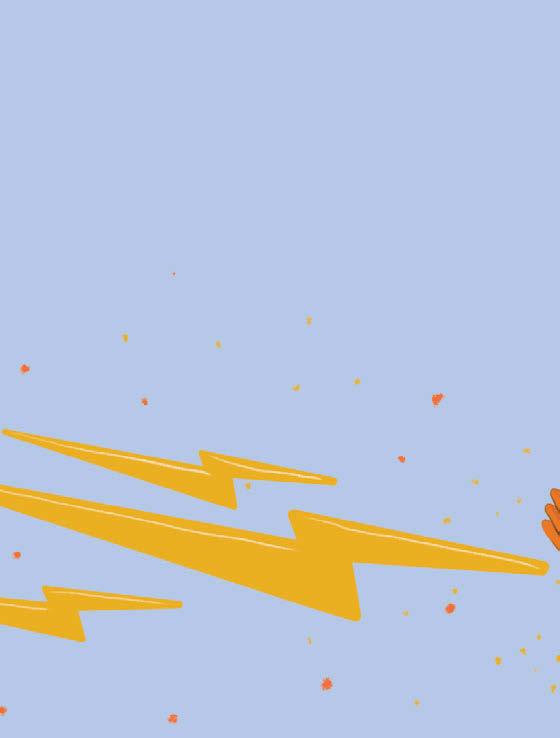




Oxford University Press is a department of the University of Oxford. It furthers the University’s objective of excellence in research, scholarship, and education by publishing worldwide. Oxford is a registered trademark of Oxford University Press in the UK and in certain other countries.
Published in Australia by Oxford University Press
Level 8, 737 Bourke Street, Docklands, Victoria 3008, Australia.
© Oxford University Press 2021
The moral rights of the author have been asserted
First published 2021
All rights reserved. No part of this publication may be reproduced, stored in a retrieval system, or transmitted, in any form or by any means, without the prior permission in writing of Oxford University Press, or as expressly permitted by law, by licence, or under terms agreed with the reprographics rights organisation. Enquiries concerning reproduction outside the scope of the above should be sent to the Rights Department, Oxford University Press, at the address above.
You must not circulate this work in any other form and you must impose this same condition on any acquirer.


ISBN 9780190326142
Reproduction and communication for educational purposes
The Australian Copyright Act 1968 (the Act) allows educational institutions that are covered by remuneration arrangements with Copyright Agency to reproduce and communicate certain material for educational purposes. For more information, see copyright.com.au.
Edited by Lucy Ridsdale Cover illustrationby Lisa
HuntIllustrated by Becky Davies
Typeset by Integra Software Services Pvt. Ltd., Pondicherry, India
Proofread by Anita Mullick
Printed in China by Leo Paper Products Ltd
Acknowledgements
The author and the publisher wish to thank the following copyright holders for reproduction of their material.
A Day to Remember by Jackie French, HarperCollins Children’s Books, 2014, pp. 14, 18, 22; One Small Island: The Storyof Macquarie Island by Alison Lester, Penguin Books, Australia, 2019, pp. 30, 34; The Glimme by Emily Rodda, Omnibus Books from Scholastic Australia, 2019, pp. 74, 89; Shutterstock, pp. 29, 30, 34
The ‘Bringing it together’ activities provided online are adapted with permission from Daffern, T. (2018). The components of spelling: Instruction and assessment for the linguistic inquirer. Literacy Education Solutions Pty Limited.
Every effort has been made to trace the original source of copyright material contained in this book. The publisher will be pleased to hear from copyright holders to rectify any errors or omissions.

Welcome to Oxford Spelling Student Book 6! This book contains 28 units that you will use across the year, and that will help you gain new spelling knowledge and skills.
You will notice that each unit is divided into three sections:

Phonology (green section)
Orthography (blue section)



Morphology (purple section).
This has been done to guide you in the types of thinking you might use to answer the questions in each section.
• In the phonology sections, think about the sounds you can hear in words.
• In the orthography sections, think about the letter patterns that you know.
• In the morphology sections, think about the meaning of base words, prefixes and suffixes.
At the end of each unit, your teacher will work with you on a ‘Bringing it together’ activity. This is a chance to bring together all the things you are learning about spelling and apply them to new words!
Your teacher, along with the Oxford Spelling superheroes, will be giving you lots of helpful information as you work through this book. Look out for the tips in each unit for handy hints on how to answer questions.
Enjoy Oxford Spelling, and meet the two superheroes
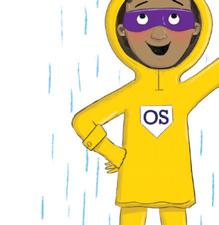
who will help you become super spellers – Cloudy Charley and Lightning Lily!
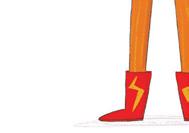
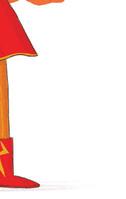
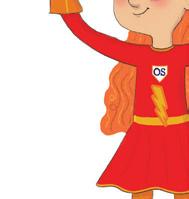
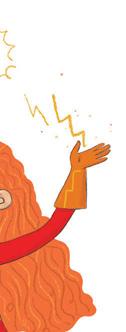



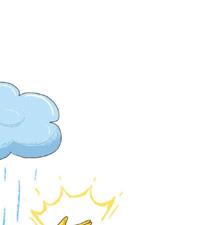
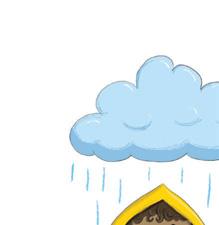
For word ‘context’ has two



Each syllable must contain a vowel phoneme. For instance, the word ‘context’ has two syllables: the first, ‘con’, has a short /o/ vowel and the second, ‘text’, has a short /e/ vowel.
1 Say each word and count the syllables. Write each word in the correct row of the table and count the number of phonemes it has.
One-syllable words
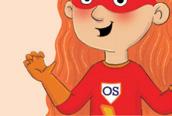
Word
Two-syllable words
Three-syllable words

Four-syllable words
Five-syllable words


Remember to check the meaning of any unfamiliar spelling terms in the glossary. Glossary terms are highlighted in orange.

How many phonemes?

1 There are many ways to spell the /aw/ phoneme (as in ‘fork’). The table below shows some of the most common letter patterns involving this phoneme. Use these letter patterns to help you fill in the missing letters in the words. Write each completed word in the table and underline the letter pattern involving the /aw/ phoneme
s______ness n_______mal br_________t g_______met ______ ful


inst ______ carniv ______ ______dience rew______d outd_______
d______way w______k t______nament th________tful ass______tment

expl______ p______se tow______ or
ass______tment
______ p______se tow______ds cardb______d h______k

1 Use the homophones to complete the sentences. You may use a dictionary to help you.
horse/hoarse course/coarse
source/sauce sore/saw/soar
a I squirted barbecue onto my sausage sandwich.
b A is a tool that can be used to cut wood.
c Scientists predict temperatures will to record levels this summer.
d Biomass is a renewable energy .
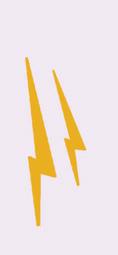
e The grazed in the paddock.
f The sailor had trouble keeping the yacht on during the storm.
g My voice sounds from the constant coughing.


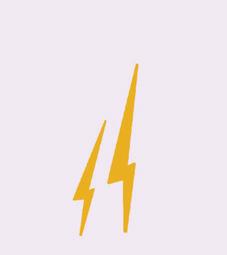
h The texture of sandpaper can be described as



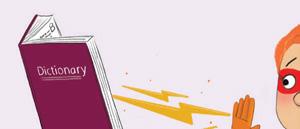
i I mountains on the horizon.
j The physiotherapist suggested stretching so I don’t feel so after running.
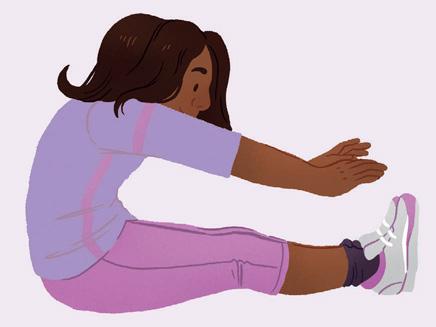
2 Write your own sentences using the homophones
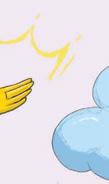









Now try this unit’s ‘Bringing it together’ activity, which your teacher will give you.
A disyllabic word is a word made up of two syllables. ‘Pumpkin’ and ‘winter’ are disyllabic words.



.
1 Say each word and clap out the syllables. Notice that each word is disyllabic. In some of the words, the first syllable is accented (the beat feels stronger). In the others, the accented syllable is the second one. Sort the words using the table.
intent cartoon magnet perceive garden number involve napkin tonight invent winter pumpkin pencil



return combine entice monkey include

native window
First syllable is accented


Second syllable is accented
A grapheme is another word for a letter pattern. It is a letter or group of letters that represents one speech sound. The word ‘shell’ has three graphemes: sh, e and ll.
1 There are a few ways to spell the /n/ phoneme (as in ‘no’). Find the grapheme that represents the /n/ phoneme in each word and sort the words using the chart.

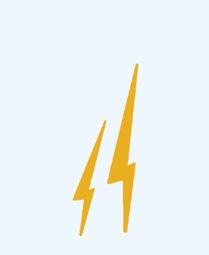
gnaw knobbly technical annual punnet assigned transform convey knowledge knew spanner sovereign gnarl enticed
knotted channel balance knitted design funnel knives
resign window innovate
2 Write these words in alphabetical order and write a sentence for each of them. You may use a dictionary to help you.


spanner gnaw knobbly assignment


sovereign gnarl transform annual
for each





knot/not knead/need Morphology

1 Use the homophones to complete the sentences. use a dictionary to help you.


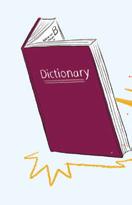





weather/whether cue/queue

You may use
a The potter will the clay before constructing a sculpture.
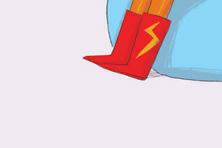
b My teacher gave us a to start packing our bags.
c I tied my shoelaces with a double .
d A synoptic chart provides information about the .


e We to wear our hats when we go outside for recess.
f My touch football team is training during the holidays.
g We couldn’t decide to go for a walk or to go on a bike ride.
h There was a long of people waiting to be served at the post office.
2 Write your own sentences using the homophones. weather whether cue queue knot not need knead
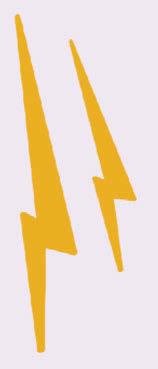







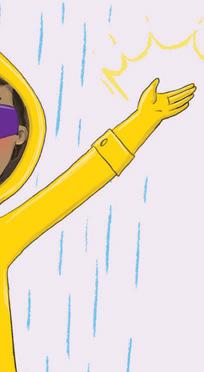

Now try this unit’s ‘Bringing it together’ activity, which your teacher will give you.
Tip
A schwa is a type of vowel sound that is neither long nor short. It is an /uh/ sound.

1 . Say each word. Can you hear a schwa? Sort the words using the table.
lady sleeping travel banana athlete again maintain inside second robot perhaps problem music question
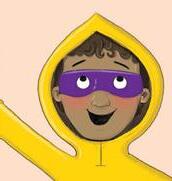
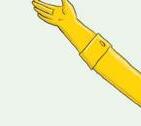

politics streamline fourteen economic monsoon position
Words with a schwa
Words without a schwa
2 Underline the consonant blends in the words you wrote in the table.
Remember that a blend can occur at the beginning of a word (as in ‘play’), the middle (as in ‘acting’) or the end (as in ‘nest’).

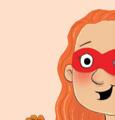
A blend can also occur at a syllable juncture, for example, the blend /ns/ in ‘ransom’.



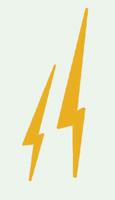
Say each word and count the syllables. Write each word in the correct row of the table and count the number of phonemes it has.
One-syllable words



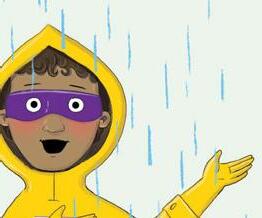
Two-syllable words
Three-syllable words
Four-syllable words
Five-syllable words
A diphthong is a kind of long vowel sound that you make by moving your mouth in two ways, such as the /ow/ sound in the word ‘cow’.
questioning problematic musicality side second strain economical position maintain politician sound that you make



The long /a/, as in ‘spray’, the long /o/, as in ‘boat’, and the long /i/, as in ‘night’, are also diphthongs. Notice how your mouth changes shape when you say the long /a/ phoneme in ‘strain’ and the long /i/ phoneme in ‘side’.
How many phonemes?
1 There are many ways to spell the long /a/ phoneme (as in ‘play’). Find the grapheme that represents the long /a/ phoneme in each word. Write each grapheme and its matching word in the first two columns of the table, and then write another word with the same grapheme. The first one is done for you.
disarray communicate freight available vertebrae


obeying greatest matinée beige chamber
Grapheme Words with this grapheme








ay disarray portray
2 Look again at the words you wrote in the table. Circle the vowel digraphs that represent the long /a/ phoneme. Underline the quadgraph (a grapheme with four letters) that represents the long /a/.
A graph is a single letter that represents a single phoneme
In the word ‘pie’, p is a graph.
1 Use the rules and example words to complete the sentences on the next page that are in the present tense. Remember to add the suffix -s or -es.
If the base word ends with a consonant graph, blend or digraph, but not s, x, z, ch or sh, add the suffix -s. emit | emits demand | demands
checkMum that the door is locked.
If the base word ends with s, x, z, ch or sh, or a consonant trigraph such as tch, add the suffix -es. surpass | surpasses clash | clashes

switchThe owner of the house the lights off.
If the base word ends in a consonant and then y, change the y to i and add the suffix -es. supply | supplies copy | copies

pryThe painter the lid off the paint tin.
If the base word ends in e, just add the suffix -s. decline | declines inflate | inflates




apologiseIf my brother is late, he genuinely .
2 Scan a book you are reading to find some base words that follow the rules you learned in the last activity. The words will be verbs. Write each base verb in the table and add the suffix -s or -es.
Rule Example Similar base verb
1 emit | emits




2 surpass | surpasses
3 supply | supplies
4 decline | declines decline

Base verb with -s or -es
Now try this unit’s ‘Bringing it together’ activity, which your teacher will give you.
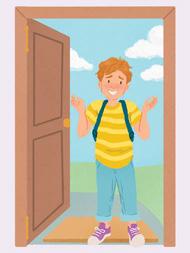
Amidst
Amidst courage and confusion inexperienced ‘colonials’ gained and tried to hold their ground. They failed, but that day a legend had been born. Below them, in what is now known as Anzac Cove, the piles of bodies grew.
1 Read the text above and find words in it to complete the table.

Two words that start with a consonant digraph

Two words with a long /a/ phoneme
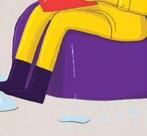
Two words with a long /i/ phoneme
Two words with five phonemes

Two words that end with an accented syllable

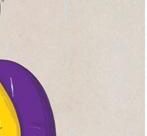







Three words that start with an accented syllable
A word … with six phonemes that rhymes with ‘stained’

that ends with a consonant blend

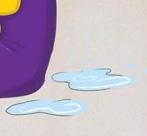

with a long /e/ phoneme

with a schwa in the final syllable
with five syllables
1 There are many ways to spell the long /e/ phoneme (as in ‘see’). Find the grapheme that represents the long /e/ phoneme in each word. Write each grapheme and its matching word in the first two columns of the table, and then write another word with the same grapheme. You may use a dictionary to check your spelling. The first one is done for
word in the first two and another word with the same . You may first for you.
between feature egocentric deplete diesel deceit
Grapheme Words with this grapheme

ee between degree



2 Write a descriptive sentence for each word here and on the next page. You may use a dictionary to help you.
Word Sentence agreeable diesel egocentric

deceit feature Morphology
1 Use the rules about the suffix -ing and the example words to complete the sentences.
If the base word ends with a short vowel graph then a consonant graph, double the last letter and add the suffix -ing. commit | committing forget | forgetting

planMy parents are a party for their anniversary.
If the base word ends with x, or with a consonant blend, digraph or trigraph, just add the suffix -ing. match | matching blast | blasting

flourishThe orange tree is in the sunlight.
If the base word has a vowel digraph in the last syllable, just add the suffix -ing. bow | bowing complain | complaining









speakA scientist will be at the conference.
If the base word ends in y, or a vowel digraph, trigraph or quadgraph such as ow, er, igh or eigh just add the suffix -ing. neigh | neighing flee | fleeing

simmerThe sauce was on the stove.
If the base word ends in e, and the e is not part of a vowel digraph or trigraph, drop the e and then add the suffix -ing. brake | braking relate | relating

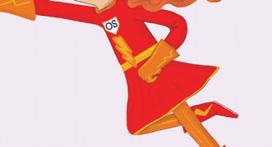


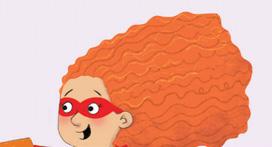


chooseLots of my friends are to join the cricket team.

2 Scan a book you are reading to find some base words that follow the rules you learned in the last activity. The words will be verbs. Write each base verb in the table and add the suffix -ing
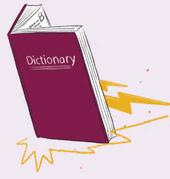

3 Use the homophones ‘genes’ and ‘jeans’ to complete the sentences. You may use a dictionary to help you.

a In science, we are learning about how affect our development.
b I like to wear my comfortable old .

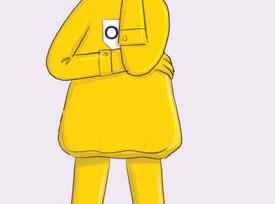
Now try this unit’s ‘Bringing it together’ activity, which your teacher will give you.
The war had ended. The survivors came home. Weary, battered in mind and body, few spoke of what they had seen. There was no need for enlistment marches now. But every family in Australia and New Zealand had lost a loved one or seen the faces of those who had come home. And they remembered.
There

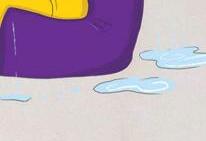




1 Read the text above and find words in it to complete the table.

Four disyllabic words
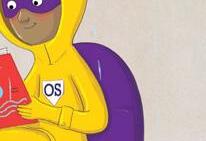

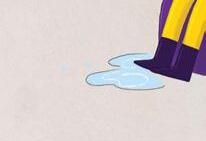
Three three-syllable words
Four words with a consonant digraph
Four words with four phonemes
Four words that start with an accented syllable
Three words with five phonemes

Two one-syllable words that end with a consonant blend



Two words with a schwa in the second syllable

words with a long /a/ phoneme


words with a short /a/ phoneme

Two words with a long /i/ phoneme

Two words with a short /i/ phoneme



A word
that rhymes with ‘foam’
that rhymes with ‘joke’


that rhymes with ‘crows’
with six phonemes
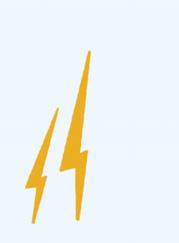



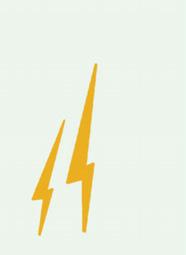

with a long /e/ phoneme
with a short /e/ phoneme

1 There are many ways to spell the long /o/ phoneme (as in ‘no’). Find the grapheme that represents the long /o/ phoneme in each word on the next page. Write each grapheme and its matching word in the first two columns of the table, and then write another word with the same grapheme. The first one is done for you.
. The first one is done for you. grapheme
borrow boastful evoke avocado foe although bureau
Grapheme for the long /o/ phoneme






Words with this grapheme

borrow follow
2 Write a descriptive sentence for each of these words. You may use a dictionary to help you.

Word Sentence
boastful woe
1 Write sentences for each base word. Add suffixes to the base words in the first column. The first one is done for you.
Tip Base



When adding suffixes to the base words, remember to use the rules that you have learned so far. Have a look at pages 13, 16 and 17 to refresh your memory.




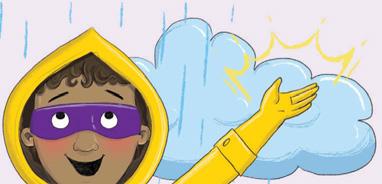
-s or -es The investigation reveals how circuits work.


-ing He smiled, revealing his braces.





Now try this unit’s ‘Bringing it together’ activity, which your teacher will give you.
 by Jackie French
by Jackie French
Now, armies
Now, in World War Two, as Australian troops fought German and Italian armies in Europe and the Middle East to save Britain, and as Japanese armies headed towards Australia, Anzac Day was celebrated at the new War Memorial in Canberra for the first time. But with the risk of Japanese bombers flying overhead, there could be no big gatherings anywhere this year.

1 Read the text above and find words in it to complete the table.

Two four-syllable words


Two words that start with a vowel digraph
Two words that start with a consonant blend




Two words with a long /a/ phoneme
Two words with a long /e/ phoneme

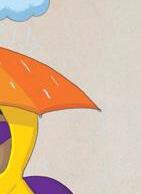
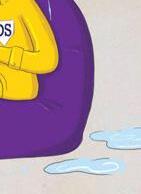
A word … that starts with a short /a/ phoneme
that rhymes with ‘rewards’ with the long /o/ phoneme with nine phonemes
1 There are many ways to spell the long /oo/ phoneme (as in ‘moon’). Find the grapheme that represents the long /oo/ phoneme in each word. Write each grapheme and its matching word in first two columns of the table, and then write another word with the same grapheme. The first one is done for you.
through suitable
gruesome booster
dilute jewellery routine ruby who
Grapheme Words with this grapheme

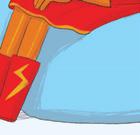

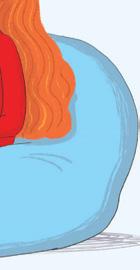






ough through throughout
2 Write a descriptive sentence for each word below and on the next page.
Word Sentence
dilute gruesome
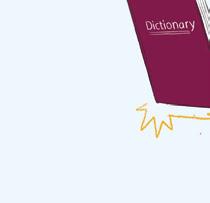



1 Use the rules about the suffix -ed and write a sentence in the past tense using one of the example words for each rule.
If the base word ends with a short vowel graph then a consonant graph (other than x), double the last letter and add the suffix -ed. drip | dripped plan | planned rot
If the base word ends with x, or with a consonant blend, digraph or trigraph, just add the suffix -ed. march | marched tilt | tilted dispatch | dispatched

If the base word has a medial vowel digraph, just add the suffix -ed. beam | beamed rain | rained toil | toiled






If the base word ends in a vowel digraph or trigraph such as ay, ow, er or igh, usually just add the suffix -ed. remember | remembered pray | prayed stow | stowed

If the base word ends in e, drop the e and then add the suffix -ed. refuse | refused entwine | entwined glare | glared

If the base word ends in a consonant then y, change the y to i, and add the suffix -ed. simplify | simplified rely | relied carry | carried

2 Scan a book you are reading to find base verbs that follow the rules you learned in the last activity. Write each base verb in the table and add the suffix -ed
Rule Example Similar base verb Base verb + suffix -ed

1 drip | dripped
2 march | marched

3 beam | beamed
4 remember | remembered
5 refuse | refused
6 simplify | simplified


3 Use the homophones to complete the sentences.
leased/least allowed/aloud rowed/rode/road bored/board


a Robin a building so he could open his new café.
b After school, we are to use the music room.
c I was excited to try out my new because I had just learned to surf.
d Niamh the boat across the river using the oars.
Now try this unit’s ‘Bringing it together’ activity, which your teacher will give you.
A multisyllabic word has two or more syllables ‘Friendship’ and ‘creativity’ are both multisyllabic words


are both


1 Think of some words you know from a subject you’re learning about, such as science, history, or health and physical education. Find some interesting or complex words from this topic to complete the table below.
Three disyllabic words

Three three-syllable words
Two four-syllable words
Two five-syllable words
Three words with five phonemes

Three words with six phonemes
Three words with seven phonemes

Three words with eight phonemes

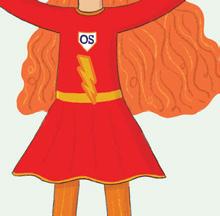
A word with a
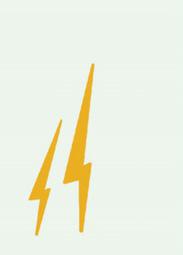
Three words with nine phonemes multisyllabic word with a long /a/ phoneme


A disyllabic word with a short /a/ phoneme
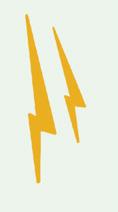
A multisyllabic word with a long /e/ phoneme
A disyllabic word with a short /e/ phoneme
A word …
that starts with a schwa with a schwa in the final syllable with a long /oo/ phoneme with an /aw/ phoneme





that starts with a consonant digraph
that ends with a consonant digraph

that starts with a consonant blend
that ends with a consonant blend
1 There are many ways to spell the long /i/ phoneme (as in ‘sight’). Find the grapheme that represents the long /i/ phoneme in each word. Write each grapheme and its matching word in first two columns of the table, and then write another word with the same grapheme. The first one is done for you.
word in first two columns of the table, and then . The first one is done for you.
insight hydrate archive lie climax haiku feisty
Grapheme for the long /i/ phoneme


Words with this grapheme

igh insight brightly
2 Write a descriptive sentence for each word. You may use a dictionary to help you.
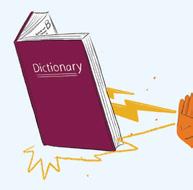
Word Sentence
insight
synapse archive
climax
A contraction is a shortened form of two words joined together. An apostrophe is used to replace one or more letters.




The words ‘I will’ are word ‘I’ll’. The letters

The words ‘I will’ are joined and shortened to make the word ‘I’ll’. The letters w and i are replaced with an apostrophe.

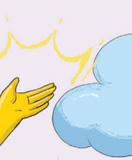

1 Use the homophones to complete the sentences. You may use a dictionary to help you.

a My uncle was trying to remember if left the keys in the car.
b A unicycle has one .
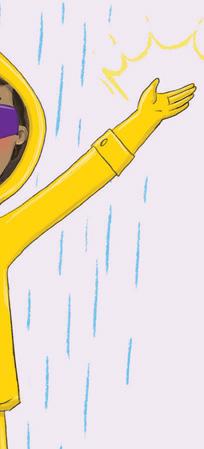
c I think walk my dog after lunch.
d Another word for island is .


e My friends and I will have lunch and then go to the movies together.
f My parents want to know shoes are covered in mud.
g The farmers were urged to the weather warning.
h Our teacher told us coming to visit our class tomorrow.
i At the supermarket, I walked down each

Now try this unit’s ‘Bringing it together’ activity, which your teacher will give you.
 by Alison Lester
by Alison Lester
Macquarie Island lies in the Southern Ocean, between Antarctica and New Zealand. A speck of green in the vast, windswept sea, it is a haven for many creatures that live above and below the waves. The island was born millions of years ago when colossal subterranean forces pushed the sea floor upwards. Over eons, a ridge rose from the depths until finally its peak broke through the waves. Slowly a whole section of the ocean floor was exposed to form Macquarie Island.
1 Read the text above and find words in it to complete the table.
Three disyllabic words



Two three-syllable words
A four-syllable word
A five-syllable word
Two words with the same number of phonemes as the word ‘colossal’
A word that starts with a consonant blend and ends with a consonant digraph
Three words with a consonant digraph to represent the third phoneme
All of the words with a /sh/ phoneme
Two words with a long /a/ phoneme
A word with a schwa as the second phoneme
Two disyllabic words that start with a consonant blend

All two-syllable words with a long /e/ phoneme
A three-syllable word with a long /i/ phoneme
A word with a long /oo/ phoneme as the third phoneme


1 Write a descriptive sentence for each word. You may use a dictionary to help you.

Word Sentence
extinguish

machinery
precious
crustacean
Morphology
2 There are many ways to spell the /sh/ phoneme (as in ‘shop’). Find the grapheme that represents the /sh/ phoneme in each word. Write each grapheme and its matching word in the first two columns of the table, and then write another word with the same grapheme The first one is done for you.
extinguish machinery section
precious crustacean mansion
Grapheme for the /sh/ phoneme

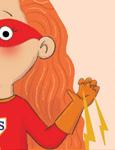







Words with this grapheme

sh extinguish shadow
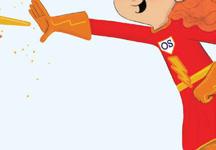
The suffix -ian can be used to form nouns describing a person. For instance, the word ‘music’ becomes ‘musician’, meaning a person who plays music.
1 Check the spelling of the words shown in the first column of the table below and on the next page. Decide whether they should have the suffix -ion or -ian and use the correctly spelled word to complete the sentence. Use the tip to help you.
mathematician
mathematicion
A calculates complex equations.
propositian proposition
competition
Our to renovate the building was well received.
competitian Our team won the .
historion historian
A studies events that have taken place in the past.
musicion musician A visited our school and played her oboe.
composition
compositian
pollutian pollution


electrician electricion
explosian explosion
comedion comedian
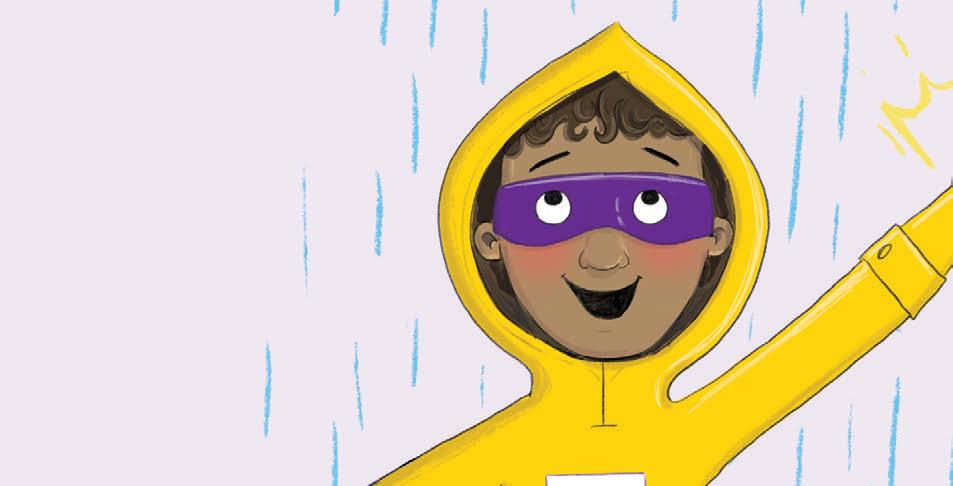
The sculpture is a unique of clay and wood.
Air is reduced because there are fewer vehicles on the road.

An was required to replace the broken oven.
A massive shook the ground beneath us.
The audience laughed hysterically as the performed.
Now try this unit’s ‘Bringing it together’ activity, which your teacher will give you.
 by Alison Lester
by Alison Lester
For centuries, animals and plants existed in a fragile balance as the seasons came and went. Megaherbs and tussocks covered the misty hills and jagged rocks towered over stony beaches. There were no trees, and on the wind-scoured plateau, moss and lichen grew in stripes.
1 Read the text above and find words in it to complete the table.
Three words with the same number of phonemes as the word ‘plateau’
A word that starts and ends with a consonant blend

Three disyllabic words with a consonant digraph to represent the third phoneme
All of the words that start with a /s/ phoneme and end with a /z/ phoneme
A word with a schwa as the third phoneme

A word that rhymes with ‘ragged’
All disyllabic words with a long /e/ phoneme
Three disyllabic words with the long /o/ phoneme

1 There are many ways to spell the /s/ phoneme (as in ‘sat’). Find the letter patterns that involve this sound in each word. Write each letter pattern and its matching word in the first two columns of the table, and then write another word with the same letter pattern. The first one is done for you.
mystical colossal purpose resource

scenic psychology gristle
incident
Letter pattern



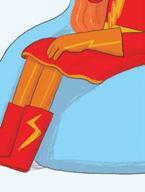


Words with this letter pattern involving the /s/ phoneme



s mystical saddle
Write a descriptive sentence for each of the words below and on the next page. You may use a dictionary to help you.
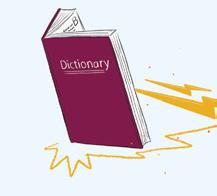


for each of the words below and on the next page. You may

Word Sentence




mystical resource

derive from











The suffixes -ance and -ence derive from Latin. They usually refer to a quality or state, but sometimes can mean an action or a process. The word ‘performance’, with the suffix -ance, means ‘the process of performing’. The word ‘persistence’, with the suffix -ence, means ‘the state of persisting’.
1 Use the rules below and on the next page to complete the table on the next page.





If the base word is a verb that ends in y, change the y to i and add the suffix -ance. apply | appliance rely | reliance defy | defiance

If the base word is a verb that ends in ure, remove the final e and add the suffix -ance. insure | insurance reassure | reassurance nurture | nurturance
If the base word is a verb that ends in ear, add the suffix -ance. forbear | forbearance reappear | reappearance




If the base word is an adjective that ends in ant, remove these three graphemes and add the suffix -ance. tolerant | tolerance elegant | elegance fragrant | fragrance
If the base word is an adjective that ends in ent, remove these three letters and add the suffix -ence. different | difference evident | evidence absent | absence




If the base word is a verb that ends in ere, remove the final e and add the suffix -ence. revere | reverence cohere | coherence interfere | interference
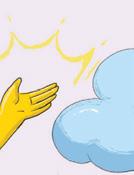


Base word Word with suffix


Base word Word with suffix clear interfere excellent vary comply significant important confident adhere endure



2 Write a descriptive sentence using one of the words above with the suffix -ence or -ance.
Now try this unit’s ‘Bringing it together’ activity, which your teacher will give you.

1 Say each word and note which vowel phoneme it has. In the top row of the table, write the vowel phonemes you can hear. Then sort the words using the table. The first one is done for you.
shed threat drip straw myth dull food said through score glove cleanse force sieve blue young




Short/e/ phoneme
shed
2 Complete the table below using the words from the last activity.
All of the words with /r/ as the second phoneme

Three words that end with a consonant digraph
All of the words with /d/ as the third phoneme
All of the words with the grapheme y representing a vowel
The two words with the largest number of phonemes

1 There are a few ways to spell the short /e/ phoneme (as in ‘bed’). Read the sentences below the table. Some words have missing graphemes that represent the short /e/ phoneme Choose from the graphemes in the table to complete the words, then sort them using the table.
Words with e
Words with ea

Words with ai


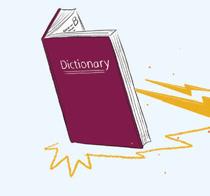
a There was a dr dful smell emanating from the swamp.
b The elephants were b llowing
c Boomerangs and spears are examples of traditional hunting w pons.
d My friend s d something that made me laugh.
e An thical person is honest and has high moral standards.
f My first impr ssion of the artwork was that it was a photograph rather than a painting.
g The carpenter needed to m sure the size of each room before starting the job.
h The architect began to sk tch a potential design for a new building.
i Once ag n, it has started to rain.

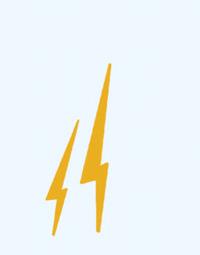
j The scientists’ br dth of knowledge is admirable.

k I struggled to carry the cumbersome m tal toolbox.

l Wild flowers can thrive in protected m dows.
m We stood ag nst the brick wall while watching the parade.
1 Use the base verbs listed in the tables on the next page to write sentences. Add the suffix listed in the table heading to the end of each base verb. The first one has been done for you.

Refer to page 13 if you need to review the rules for using the suffix -s or -es

Base verb Sentence using base verb + suffix -s or -es
decide When we play cricket, a flip of a coin decides who will bat first. gain
Refer to pages 16–17 if you need to review the rules for using the suffix -ing

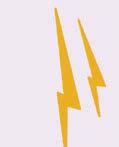

Base verb Sentence using base verb + suffix -ing



decide They gave up trying to cross the river, deciding that it wasn’t worth the risk.
Base verb Sentence using base verb + suffix -ing push stop cover


Tip

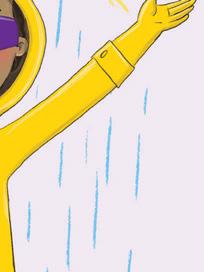
Refer to pages 24–25 if you need to review the rules for using the suffix -ed




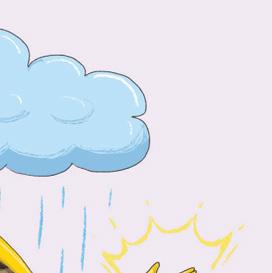


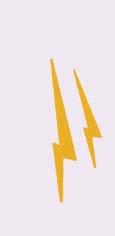
Base verb Sentence using base verb + suffix -ed decide Darren decided to stay home because he had a sore throat. gain try experience push stop cover

Now try this unit’s ‘Bringing it together’ activity, which your teacher will give you.
Tip
two more words with the same
1 Sort these words using the table. Then add two more words with the same rime into each column.
fur blur stare
scar stir appear galah aware


here stair star hear
Words with the same rime as ‘sear’




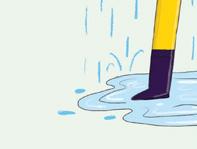


Words with the same rime as ‘hair’

Words with the same rime as ‘far’
Words with the same rime as ‘her’


1 There are several ways to spell the /j/ phoneme, as in the word ‘jam’. Read the sentences on the next page. Some words have missing letter patterns that involve the /j/ phoneme. Choose from the letter patterns listed in the table on the next page to complete the words, then sort them using the table. You may use a dictionary to check the spelling of the words.
have letter patterns . Choose the letter



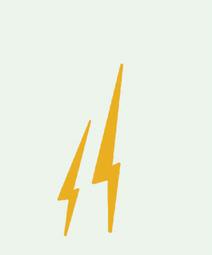


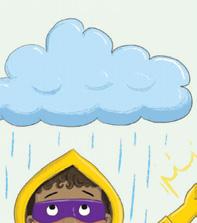

Words with dge

Words with dj
Words with ge
Words with gi
Words with gg
Words with j
a When I spoke at assembly, I needed to pro ect my voice.
b There is a smu from the wet paint on my artwork.
c The information was presented in a lo cal manner.
d To make the oran paint, mix the red and yellow together.
e The meeting is a ourned until tomorrow.
f The evidence su ests that most people enjoyed the movie.
g The image on the front cover of the book did not do ustice to the novel.
h It is not helpful to hold a gru against a person.
i My new di tal watch is more reliable than my old analogue watch.
j Heart sur ons save many lives.
k A ournalist is a person who prepares news stories to be published or broadcast.



l Aboriginal and Torres Strait Islander cultures developed over countless nerations.
m I had difficulty a usting my seatbelt.
n They will dre the river to allow larger vessels to travel along it.

o I think my teacher was exa erating when she said how difficult the test would be.


p The castle kitchen a oins a large courtyard.
q We spent the afternoon exploring the quaint French villa
Tip
A plural noun is a word that tells us that there is more than one thing. ‘Icicles’ and ‘gorillas’ are plural nouns. The suffix -s or -es can be added to many nouns to create


plural nouns.
1 Use the rules to complete the sentences. Then find another word that follows each rule, and use it in a new sentence. You can scan a book are reading to find suitable words.
that follows each rule, and use it in a new sentence. You can scan a book you

If a base word ends in s, x, z, ch or sh, add the suffix -es.

Base word Sentence
speech Three funny entertained us during the assembly.
If a base word ends in f or fe, it is usual to change the f or fe to a v and then add the suffix -es.

Base word Sentence
elf Mythical creatures known as derive from folklore.
If a base word ends in a vowel and the letter o, add the suffix -s.




Base word Sentence












cameo are small oval-shaped brooches with a carved portrait.

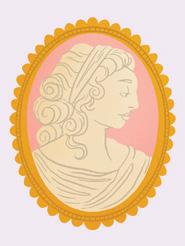
If a base word ends in e, just add the suffix -s.
Base word Sentence
bridge Several of the ancient _________________________ need to be restored.
If a base word ends in a consonant and then o, it is usual to add the suffix -es.

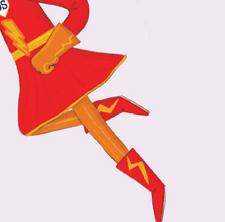




Base word Sentence
mosquito The riverbank is a breeding ground for __________________________________.

If a base word ends in a consonant and then y, change the y to i and add the suffix -es.


Base word Sentence







hobby My favourite _________________________ are painting and cooking.

Now try this unit’s ‘Bringing it together’ activity, which your teacher will give you.
1 Say each word and sort them using the table. Then find some more words with these phonemes in a book you are reading and add them to the table.
fragrant thorough
evaporate massively phenomena whether thermometer


nervous breathe different worthy birthday
Words with a /f/ phoneme
Words with a /v/ phoneme
Words with an unvoiced /th/ phoneme, as in ‘thing’

Words with a voiced /th/ phoneme, as in ‘that’
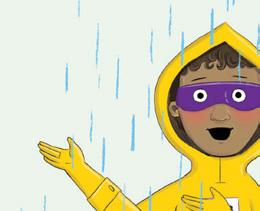
Tip
A vowel letter usually follows the phoneme /v/ in a word. If a word ends with /v/, the letters ve are used as a digraph. The word ‘of’ is an exception.


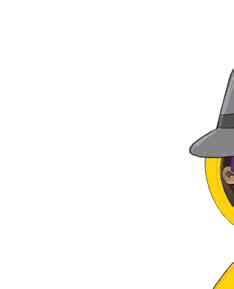

1 The words below are incomplete. Decide whether to use va, ve, vi, vo or vu to complete them. You may use a dictionary to check the spelling of the words.
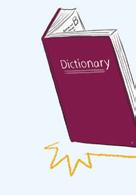
cating appro in tation lcano con lse cur luntary ad nce achie indi dual sible lture carni l lnerable creati ine table yage e luate a cado
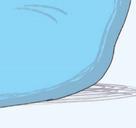
Underline the words above that end with the /v/ phoneme Circle the words with the ve digraph



Read aloud from a book you are you can find some



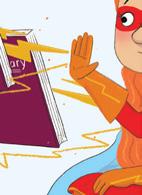


2 Read aloud from a book you are reading. See if you can find some words with the /v/ phoneme. Copy five of these words into the table below and underline the letter v and the vowel letter that follows it. Then copy the sentence you found it in.
Word with the /v/ phoneme Sentence




The suffix -er can be used to change a base verb to a person noun. For example, the verb ‘dance’ can be changed to the noun ‘dancer’ – someone who dances.

. For Use the rules to complete the tables. Make sure that each word you choose follows the


1 Use the rules to complete the tables. Make sure that each word you choose follows the same rule as the example.
If the base word ends in e, drop the e and then add the suffix -er.

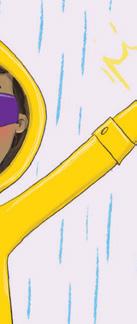



Verb
Person noun with -er suffix Sentence
compose composer Wolfgang Amadeus Mozart was a famous composer.
If the base word ends with a short vowel graph then a consonant graph other than x, double the last letter and then add the suffix -er.


Verb
Person noun with -er suffix Sentence



drum drummer
The band has a singer, two guitarists and a drummer.

Now try this unit’s ‘Bringing it together’ activity, which your teacher will give you.
1 Say each word. Sort the words using the table.
account annoy decay portrayal thousand disappointing

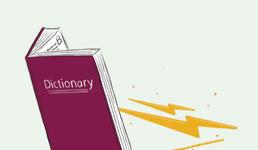
voyage pounding drainage choice empowering payment
2 Remember that the /ow/, /oi/ and long/a/ phonemes are all diphthongs. The following words have /ow/ (as in ‘cow’ and ‘sound’), /oi/ (as in ‘alloy’ and ‘coin’) or long /a/ (as in ‘say’ and ‘rain’).
Decide which version of the word is spelled correctly, circle it and read it aloud, then write it on the line provided. Underline the letters that represent the diphthong in each word you write. You may use a dictionary to check your answers.
You may
a mointainous mountainous maintainous
b betrayal betrowl betroyl
c powder poyder payder
d araind aroind around
e retown retoin retain
f enjayment enjowment enjoyment
g poisonous paysoinous powsonous
1 Read the sentences. Some words have missing letters that represent the diphthong /ow/, as in ‘cow’. Write either ow or ou to complete the words.
a Tibet is one of the most m ntainous places in the world.
b It is unlikely that a p er station will be built in this area.
c It can be a challenge to pron nce foreign words.
d A famous botanist enc ntered a new plant.
e The garden is blooming with fl ers of all varieties.
f Members of the local c ncil meet once a month.
g Josef was feeling d btful that he would win.
h I felt dr sy after the long journey.
2 Scan a book you are reading. Find some more words with ou or ow representing the diphthong /ow/. Write them in the table.
Words with ou
Words with ow
3 Read the sentences. Some words have missing letters that represent the diphthong /oi/, as in ‘boy’. Write either oy or oi to complete the words.

a Matilda counted her collection of c ns.
b The new company will provide empl ment for many people.
c Sudden n ses can frighten my dog.
d The leader inspires l alty in the community.
e The word ‘fun’ starts with an unv ced phoneme.



f A person who is flamb ant attracts attention because of their vibrant personality.

g My dentist app ntment is scheduled for tomorrow afternoon.

h The potter added water to m sten the clay.

4 Scan a book you are reading. Find some more words with oi or oy representing the diphthong /oi/. Write them in the table.

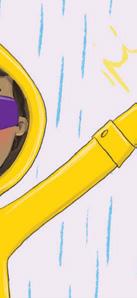

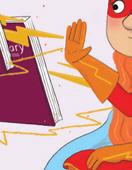

Words with oi
Words with oy
1 Use the homophones to complete the sentences. You may use a dictionary to help you.

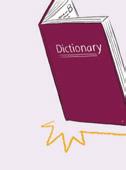
a A hen is a type of .
b Two essential ingredients needed to make pasta are and eggs.
c The odour of rotten eggs is








d Adding a frangipani to the roses will make the room smell beautiful.
2 Write your own sentences using the homophones.
Now try this unit’s ‘Bringing it together’ activity, which your teacher will give you.
1 Read the multisyllabic words in the table. In the next column, write which phoneme is a schwa. Then write down more multisyllabic words with a schwa from a book you are reading. Notice that some multisyllabic words do not have a schwa

company 5th phoneme important national
I am reading
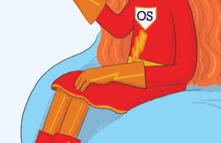







managing causation
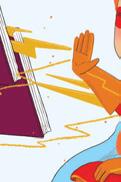
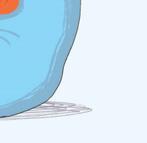

imposter

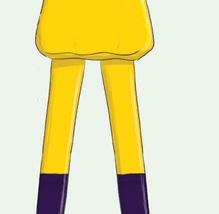

necessary
broccoli
1 There are many ways to spell the /aw/ phoneme, as in ‘chalk’. The words below have missing letters that involve the /aw/ phoneme. Choose from the letter patterns in the table on the next page to complete the words, then write the completed words in the table.
Use a dictionary to check the spelling if you are not sure.
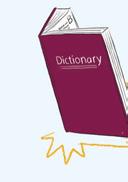
abn mality w nuts ad h k astron t


keyb d rew ding gal outd s m nful

br t withdr th tful abs ption inst
p sing ab d tow ds t naments p ly




ough



1 Use the homophones to complete the sentences. You may use a dictionary if you are not sure.
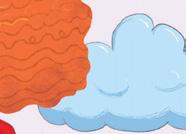




serial/cereal cymbal/symbol







a We asked the drummer to play the crash more quietly.
b I added some yoghurt and fruit to my breakfast .
c A large biohazard was displayed on the steel drum.
d My favourite stories are science fiction.

2 Write your own sentences using the homophones.

Now try this unit’s ‘Bringing it together’ activity, which your teacher will give you.



1 These words have an r-influenced vowelphoneme. Sort the words using the table.
startle nervous heritage research careless scar argument
pleasurable preparing artist journey awareness unfairly



firmly


adverb journal repaired carving glares embark
sharpen reoccur deserve declare archive bizarre billionaire
Tip
Sometimes r-influenced vowel phonemes can sound a little different, depending on the way a person pronounces them. Sometimes they can sound like a schwa, an /uh/ sound, but the spelling doesn’t change.
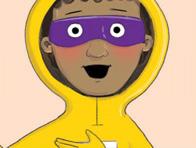
1 There are many ways to spell the /er/ phoneme (as in ‘her’). The words below have missing letters that represent the /er/ phoneme. Choose from the graphemes in the table below to complete each word, then sort the words using the table.
Tip

Use a dictionary to check the spelling of the words if you are not sure.
aff________m res__________ching st________dy inj___________s adv________bial

w________kable medioc________ adj__________n kilomet________s f________mly
__________thquake obs________ve flav__________less pict___________s occ________red
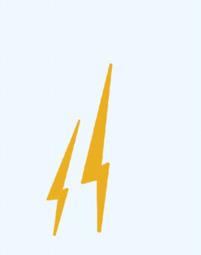
w________thy g________m ch________ning st________ y___________n


conj__________s w________ship sav__________y

conj__________s w________ship sav__________y fib________s

ure or our re

1 Use the homophones to complete the sentences. You may use a dictionary to help you.


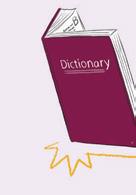




a The cruise ship will at the pier tomorrow.
b A large container that heats water is called an










c Jade will some pocket money if she mows her neighbour’s lawn.

d There is a higher rate in the city.
2 Write your own sentences using the homophones.
Now try this unit’s ‘Bringing it together’ activity, which your teacher will give you.
1 The words below have an r-influenced vowel phoneme. Sort the words using the table.
fearful disheartening circus heritage mournful endearing

reward

stirring charming harshest cavalier


awareness purple bursting orthography enforce serial parsnip disrepair heard gourmet volunteer


Words with /ear/, as in ‘near’
Words with /ar/, as in ‘start’
Words with /air/, as in ‘pear’
Words with /er/, as in ‘learn’
Words with /aw/, as in ‘talk’
warehouse carpet
dairy

2 Find some more words with these r-influenced vowel phonemes in a book you are reading and add them to the table.
a book you are Tip

If you are reading a book from North America, you might notice some spelling differences. The final phoneme in words such as ‘colour' and 'favour' is spelled or instead of our.

If you are reading a book from North America, you might notice ‘colour' and 'favour' is spelled
1 There are many ways to spell the /k/ phoneme (as in ‘kite’). The words below have missing letters that represent the /k/ phoneme. Choose from the graphemes in the table below to complete each word, then sort the words using the table.
Use a dictionary to check the spelling of these words if you are not sure.
____olourful breathta____ing ara______nid shipwre______

uni________ly mar____ets chi_______en opa_________


monar______y re____ommend grotes________ bro____en
pa_______age s____raping _______aotic ______oir
obli_________ wi_______ed ____itten a____tivities
2 Choose one word from each row of the table and write a sentence that uses all of your chosen words. You may add suffixes to the words if you need to. Then circle those words.
The suffixes -able and -ible mean ‘able to be’ or ‘worthy of’. They can be added to the end of some base words to form adjectives, such as ‘enjoyable’ (able to be enjoyed).
The suffix -able is more common than the suffix -ible.
The suffix -able is generally used when a complete word comes before it (e.g. ‘laugh’ becomes ‘laughable’). It is common to use -ible after a word ending in the /s/ phoneme (e.g. ‘sense’ becomes ‘sensible’). The suffix -ible is also often used after an incomplete word.
1 Complete the table by adding the suffix -able to each base word and using it in a sentence. Underline the adjective with the suffix in each sentence. The first one is done for you.
Base word Sentence
reason The cost of the new car is reasonable.

2 The adjectives below end with the suffix -ible. Underline the suffix -ible in each word. Write the matching base word. Then write a sentence using the adjective. The first one is done for you.

If the base word ends in e, usually drop the e before adding the suffix -ible.

Adjective

Base word
Sentence
reversible reverse I wore my new reversible jacket on the weekend.
collapsible responsible
3 Read the list of adjectives. These words also end in -ible but the letters that come before the suffix do not make a complete word on their own. Circle the suffix in each adjective and underline the part of the word that comes before the suffix. Then write a sentence using the adjective. The first one is done for you.
Adjective with suffix Sentence





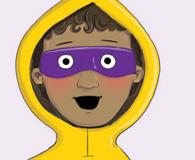
neglig ible The difference in taste between the two cakes is negligible. tangible legible plausible



plausible have over time.
Etymology is the study of where words come from and how they have changed over time.


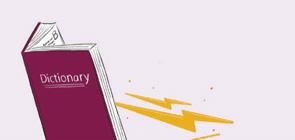
4 Use an online etymology dictionary to find out the origin of the words listed in the table below. Write a definition for each word.
Notice that the que in these words represents the /k/ phoneme




Word Origin Definition
grotesque picturesque technique
Now try this unit’s ‘Bringing it together’ activity, which your teacher will give you.
1 Each word below has a consonantblend. It might be an initial consonant blend (at the start of a word); a medial one (in the middle of a word); or a final one (at the end of a word). Sort the words using the table. Then underline the consonant blend in each word. evict


1 Read the sentences. Some words have missing letters that represent the long/a/ phoneme (as in ‘made’). Choose from the graphemes to complete each word.
ay ai a-e eigh a ae ey ei ea et ée
a The once beautiful village had fallen into a state of dec______.
b That was the gr test movie I have ever seen.
c The accl med professor published a new report.
d Our dog was feeling unwell so we checked her w t.
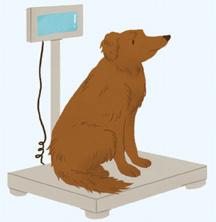
e The football st dium was packed for the grand final.
f The soir was attended by the wealthiest patrons of the city.
g The prime minister was asked to make a st t ment about the upcoming election.
h My Irish grandmother is fluent in G lic.
i The graph conv s the data in a succinct manner.
j Eating a balanced diet helps your body to obt n the nutrients it needs.
k If you don’t read those books, they may accumul t___ dust.
l The security company claimed that the window was unbr kable.
m The markets have a massive arr______ of spices from around the world.
n The restaurant specialises in gourm______ French cuisine.
o We were fortunate to relocate to a lovely n bourhood.
p We ordered a plate of calamari as an entr______.
q The earthquake could be felt in a five-hundred-kilometre r dius

r The compost was filled with insect larv______.
s The ball______ dancers performed gracefully.
t The government conducted a surv______ on languages spoken at home.
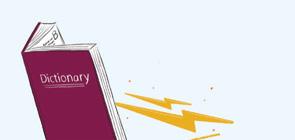
u Arteries carry blood away from the heart and v ns carry blood back to it.
v He painted the tea cups blue and b ge.
2 Sort the words you completed in the last activity using the table below and on the next page.
The suffixes -hood, -ship and -dom can be used to form nouns. The new word means something like the condition of being of the base word. For instance, ‘motherhood’ means the condition of being a mother and ‘companionship’ means the condition of being companions.
Words created with the suffix -dom can also mean the area in which something operates, such as ‘kingdom’, which is a country that is ruled by a king or a queen.
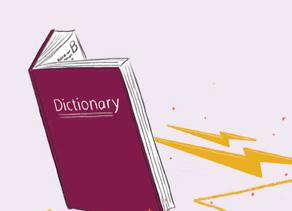


1 Make nouns from the base words by adding the suffixes -hood, -ship or -dom. You may use a dictionary to help you.
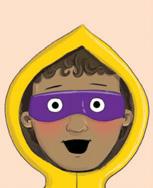
Base word Noun with suffix
Base word Noun with suffix
child relation

friend bore
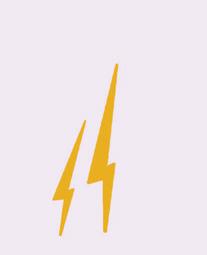
sponsor member

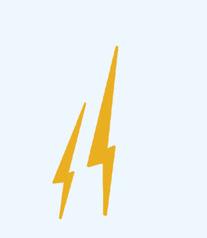
Base word Noun with suffix
Base word Noun with suffix


king adult
champion neighbour
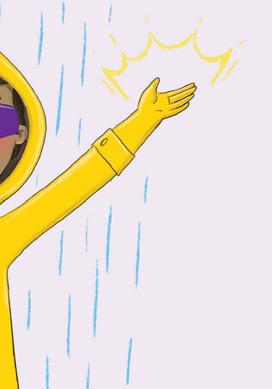
free leader
English has borrowed many words from other languages and they often have letter patterns that are different from those found in English. For example, the grapheme ée can be found in some French words that are now used in English, such as the word ‘matinée’. The symbol above the first e in ‘matinée’ is called an acute accent.

2 Use an online etymology dictionary to find out the origin of the words in the table below. Write a definition for each word.





soirée
toupee
rendezvous
ballet
protégé
Now try this unit’s ‘Bringing it together’ activity, which your teacher will give you.
1 Each word below has a consonant digraph. It might be an initial consonant digraph (at the start of a word); a medial one (in the middle of a word); or a final one (at the end of a word). Sort the words using the table and underline the consonant digraph in each word.


carries effect perish chlorinated bonding socket sheltered unleash shoulders narrow torrent fortress








charmer thousand wrinkle washable lavish careless


reaches column vanish champion chemist machines
express thermostat slither threaten beneath support
1 Read the sentences. Some words have missing letters that represent the long /e/ phoneme (as in ‘street’). Choose from the graphemes to complete each word. You may use a dictionary to check the spelling of the words.




ee ea e e-e ie ei
a My favourite actor will f ture in the new film.
b It is normal for toddlers to display ____gocentric behaviour.
c Toby rolled the ball betw n two desks.
d Industrial agriculture can depl t___ soil fertility.
e A dec tful person can be untrustworthy as they tend to lie.
f The tractor has a d sel engine.
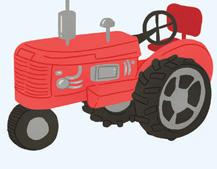
g If you wish to succ d, you should persist with challenging tasks.
person can , you

h People can do amazing things when they bel ve in the power of their dreams.
i Please divide the pie into four ___qual parts.

j A quiet forest is more ser n___ than a crowded beach.
k I will s ze the opportunity to visit an ancient castle.
l It is r sonable to expect hotter days during the summer months.

2 Sort the words you completed in the last activity using the table.
1 Use the homophones to complete the sentences. You may use a dictionary to help you.

peak/peek steel/steal piece/peace
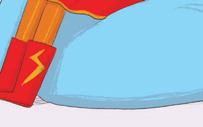
a The hikers climbed to the of the tallest mountain.
b A common material used for the construction of car bodies is .

c I like to out of the window.
d There is a sense of and calm among the people.
e I placed a generous of meat on my plate.

f It is against the law to from other people.
2 Write your own sentences using the homophones




A mnemonic is a strategy to help you remember something. The sentence ‘Have a piece of pie’ will help you remember the spelling of ‘piece’






you .

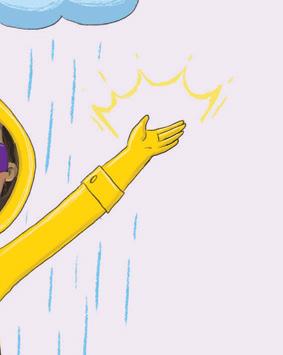
3 Select two homophones that you sometimes misspell. Create a mnemonic to help you remember the spelling of each homophone.





4 Now use a homophone you wrote about in the last activity in a sentence.

Now try this unit’s ‘Bringing it together’ activity, which your teacher will give you.
1 Sort the words using the table.
misunderstood exotic
trophy province nonsense cookware
soothing

approachable pollen


solemn
cocoon harpoon cyclone
Words with a short /oo/, as in ‘should’
Words with a long /oo/, as in ‘lute’
Words with a short /o/, as in ‘what’
Words with a long /o/, as in ‘show’
2 Scan a book you are reading to find some more words with these vowelphonemes. Write the sentences you found these words in. Then underline the words with the short /oo/, long/oo/, short/o/ or long/o/ phonemes in the sentences you wrote.
Phoneme Sentence

short/oo/ as in ‘took’ short
bamboozle willow bellowing couldn’t 70
long/oo/ as in ‘soon’
short/o/ as in ‘hot’
long/o/ as in ‘flow’
1 Read the sentences. Some words have missing letters that represent the long/o/ phoneme (as in ‘know’). Choose from the graphemes to complete the words. You may use a dictionary to check the spelling of the words.

ow oa o-e o oe ough eau
a I will be borr ing some books from the school library tomorrow.
b A person who is b stful is overly proud of something they can do.
c In drama, my teacher asked me to ev k___ the feeling of excitement in my character.
d An avocad___ is a fruit that is high in monounsaturated fatty acids.
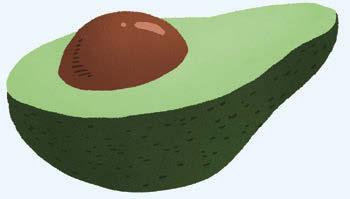
e The heroine travelled across the great land to confront her f______.

f Alth_______ the campsite was far away, the smell of the barbecue was alluring.
g The weather bur______ predicts a snowstorm in the coming days.
h My fingers and t s feel numb because the weather is so cold.
i Let’s sit under the shade of the will______ tree.
j In France, we visited an opulent chat_________.
k I decided not to go to the show even th__________ I won a ticket.
l Our new school principal is friendly and appr chable.
m My preparation for the athletics carnival was medi cre as I wasn’t feeling well.
n A massive tropical cycl n___ devastated the city of Darwin in 1974.
2 Sort the words you completed in the last activity using the table below and on the next page.
1 Use the homophones to complete the sentences. You may use a dictionary to help you.




groan/grown draft/draught
a I revised the first of my story after I got feedback from my teacher.

b The chef let out a when he realised the roast was burnt.

c A of cool air could be felt in every room.

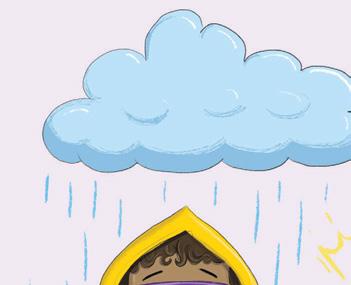


d The wheat crop has quickly this season.
2 Write your own sentences using the homophones.
groan

grown draft draught

Now try this unit’s ‘Bringing it together’ activity, which your teacher will give you.Morphology
Remember that a multisyllabicword is any word with two or more syllables. ‘Doctor’ and ‘carpenter’ are both multisyllabic words
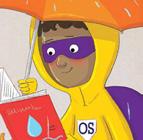
A syllablejuncture is the point where two syllables meet. In the word ‘return’, the syllable juncture happens between the e and the t.

 by Emily Rodda
by Emily Rodda
Everyone looked around, thunderstruck. A tall woman was standing at the entrance to the yard. Tinted glasses masked her eyes and gloves covered her hands. Behind her was a fine carriage drawn by a sweating horse that shivered and pawed the ground. A sullen man crouched on the driver’s seat, holding tightly to the reins.
1 Read the text above and find words in it to complete the table.


All one-syllable words ending in ed




A disyllabic word starting with a consonant digraph

Four disyllabic words starting with a consonant blend








Two multisyllabic words starting with the same vowel phoneme

A three-syllable word




Three disyllabic words with a consonant digraph at the syllable juncture
Three words with five phonemes
Three words with six phonemes
Two words with seven phonemes
All disyllabic words with a long /i/ phoneme
All words with an /ow/ diphthong
A word that … has ten phonemes
rhymes with ‘gains’
rhymes with ‘brightly’
has an unvoiced /th/ phoneme
ends with an accented syllable


has a schwa as the fourth phoneme

1 Read the sentences. Some words have missing letters that represent the long /oo/ phoneme (as in ‘moon’). Choose from the graphemes to complete each word. You may use a dictionary to check the spelling of the words.




ue oo u-e ew ou u ui o ough
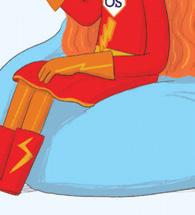

a I find it easier to get my work done when I am in a good r tine.
b We walked thr____________ the rainforest.
c I looked under my bed and found the gr some remains of an old sandwich.
d The Crown J els can be viewed in the Tower of London.
e Our meeting was fr tful, in that we made some important decisions.
f Performing well in the competition has given me a b st of confidence.
g We can dil t___ the lemon juice by adding some water.
h I wonder wh___ the special visitor will be at the next assembly.
i The aristocrat showed off her r by ring to the dinner party guests.
j It was a dark and gl my morning.
k The tram is a s table form of transport.
l A new s age treatment plant was constructed for the town.
m I was given one cl______ to help me figure out the puzzle.
n It’s cr cial that hikers check for weather warnings before ascending the peak.
o I will concl d my speech by telling a joke.
p We thought that the new action m vie was outstanding.
q Our mother told us about going camping every summer in her y th.
r Thr out the summer holidays, the parks were really busy.
2 Sort the words you completed in the last activity using the table below and on the next page.
1 Use the homophones to complete the sentences. You may use a dictionary to help you.


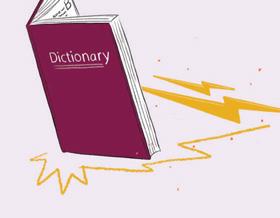


muscles/mussels residents/residence


a The queen is spending August in her summer .

b In some freshwater and saltwater habitats, , a type of mollusc, can be found.


c The human body has hundreds of .



d More than fifty live in the block of apartments.
2 Write your own sentences using the homophones.
muscles mussels residents residence
Now try this unit’s ‘Bringing it together’ activity, which your teacher will give you.
1 Sort these words using the table.
tomb egocentric chief vital
movie sewage
delight crucial reasonable
extreme client

receive bonsai grind
monsoonal



ceiling
soup machinery scientific resolute
pesticide
Words with a long/e/, as in ‘need’
Words with a long/i/, as in ‘side’
Words with a as in ‘moon’
long /oo/,







2 Scan a book you are reading to find some more words with these vowelphonemes Add the words to the table above.
phonemes
1 Read the sentences. Some words have missing letters that represent the long /i/ phoneme (as in ‘side’). Choose from the graphemes to complete each word.




a The well-known Japanese poet Matsuo Basho is famous for his h ku poems.
b The heritage society has a photographic arch v___ of the city’s earliest buildings.
c The online documentary offers ins tful information on space junk.
d A s napse is the gap between two neurons in the brain.
e I was disappointed to learn that my friend told a l______.
f The photographic artwork featured a kal doscope of vivid colours.
g The cl max of the movie was amplified by intense sound effects.
h Receiving a bouquet of flowers was a del tful surprise.
i The technique known as bons______ produces miniature plants that mimic large trees.
j A measure of s smic waves determines the amplitude of an earthquake.
k It’s important to wash the fruit because it has been sprayed with pestic d___.

l Although p thons are not venomous, they can bite or constrict.
m The shopkeeper was busy attending to many cl ents
n The Australian magp______ is a black and white bird with a beautiful voice.
2 Sort the words you completed in the last activity using the table.
1 Use the homophones ‘wail’, ‘whale’, ‘lapse’ and ‘laps’, to complete the sentences. You may use a dictionary to help you.

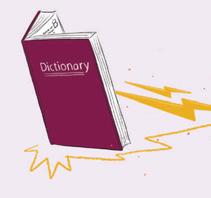
a My tennis club membership will if I don’t renew it soon.
b An example of a mammal that lives in the ocean is the humpback
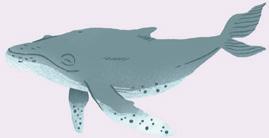
c My little sister started to when she fell off her bike.
d The swimmer swam ten of the pool in record time.
2 Write your own sentences using the homophones.
wail whale laps lapse

A morpheme is the smallest chunk of meaning in a word. For instance, the word ‘powerful’ has two morphemes, the base word ‘power’ and the suffix -ful.
A free morpheme is a complete word, such as ‘graph’ in the word ‘hydrograph’.

For instance, the word word
A bound morpheme isn’t a word on its own, such as hydro in the word ‘hydrograph’.
3 The Greek morpheme hydro means ‘water’. Add the morpheme hydro to complete each word in the first column of the table. Then write a definition for each word, using a dictionary to help you. The first one is done for you.
hydrology The scientific study of water graphy gen
power
. The word
Many words end with more than one suffix. The word ‘beautifully’ has the suffix -ful followed by the suffix -ly.


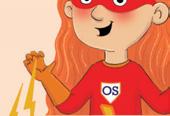




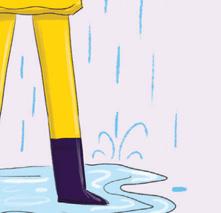






4 The word ‘hydrograph’is made up of two morphemes. Use the suffixes to make new words starting with ‘hydrograph’. You may use a dictionary to help you.
Suffixes -al -er -ic -ly -s -y



Words starting with ‘hydrograph’:



5 The Latin morpheme aqua also means ‘water’. Add the morpheme aqua to complete each word in the first column of the table. Then write each whole word in a sentence, using a dictionary to help you.
aquarium The aquarium is home to over 400 species of sea creatures.
Now try this unit’s ‘Bringing it together’ activity, which your teacher will give you.
1 Say each disyllabic word. Notice that each word has an accented syllable and an unaccented syllable. Sort the words using the table.
technique describe
image engrave
sequence opaque
display neutral
express figure
First syllable is accented
Second syllable is accented
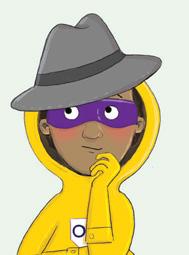
1 Read the sentences below and on the next page. Some words have missing letters that represent the last two phonemes. Choose from the letter patterns to complete the words. You may use a dictionary to check your spelling. al el le
2 Find four more disyllabic words from a subject you’re studying, such as maths, music or art. Add the words to the table above. Orthography


a A cam can travel in the desert for long periods without water.
can travel in the desert for long periods without water.
b Engineers are investigating where the leak in the tunn is coming from.
c The injured anim was treated by the vet.
d We went to the loc swimming pool on the first day of the holidays.
e My family is planning to trav overseas next year.
f At the festival, there was a large gathering of peop from many cultures.
g Heading towards the mouth of the river, we paddled our canoe on the chann .
h The stunning cor reef is home to thousands of tropical fish.
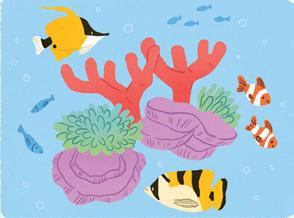
i The glass bott is filled with sparkling water.
j Quartz is a cryst that has many uses.


k Heat can trigger a chemic reaction.
l I stood in a puddle of water that was ank deep.
m An interesting artic about viruses was published today.
n I will sprink some nuts and seeds on my salad to add protein.
o To get to the dog park, you need to walk down the grav track.
2 Use the table below to sort the words you completed in the last activity.
The letter pattern le is found at the end of words, such as ‘people’ and ‘article’. Usually, this letter pattern does not appear after the letters m, n, r, v or w.
3 Scan some books you are reading to find some base words ending in le. Look at the letter pattern that comes before the le in these words. Complete the table with the words you’ve found, using the examples to help you.

ending in ble ending in cle ending in kle ending in dle ending in gle table circle sparkle middle struggle
ending in fle ending in ple

ending in tle
ending in stle
ending in zle
stifle apple turtle whistle puzzle

The suffix -ism can be added to a word to represent a practice, system or belief. For instance, the word ‘Buddhism’ refers to the belief system of people who follow the teachings of Buddha, a teacher, philosopher and spiritual leader from Ancient India.


1 Use a dictionary to find out the meaning of these words with the suffix -ism. Write a descriptive sentence using each word.
Word Sentence


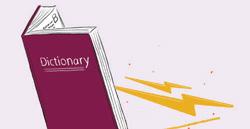


tourism
journalism
criticism
impressionism
cynicism
nationalism
realism
capitalism
2 The Latin morpheme audi means ‘hearing’, ‘listening’ or ‘sound’. Add the morpheme audi to complete each word in the first column of the table. Then write a definition for each word, using a dictionary to help you. The first one is done for you.


Word starting with audi Definition
audible Able to be heard
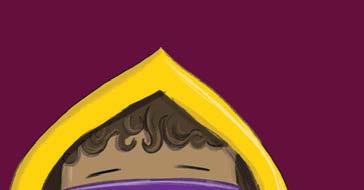



The Latin morpheme ben means ‘good’. Use this morpheme to complete the table below.
Word starting
benefit
Definition
An advantage gained from something

4 The Latin morpheme cent means ‘hundred’. Use this morpheme to complete the table below.

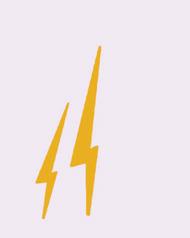

Word with to
Word starting with cent Definition
centenary A hundredth anniversary
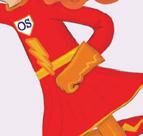
5 The Latin morpheme circum means ‘around’. Use this morpheme to complete the table below.
Words starting with circum Definition


circumference
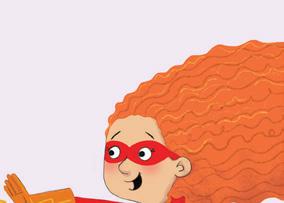
The enclosed boundary of a circular shape stance spect








Now try this unit’s ‘Bringing it together’ activity, which your teacher will give you.
1 The words below are missing one of these five initial consonant blends:
shr scr str spl spr
Complete the words using the blends You may use a dictionary to check your answers.

_______utinise _______endid _______inkage _______inkles _______unch
_______atosphere _______ubbery _______enuous _______intery _______ounge

_______outing _______eakiest _______ucture _______ingent _______ink
_______uttered _______ibble _______urge _______eadsheet
1 The words below have some missing letters. The missing letters represent an r-influenced vowel phoneme that can be heard in the unaccented final syllable of many words, such as ‘theatre’ and ‘calendar’. Choose from the graphemes or, our, er and ar to complete the words. You may use a dictionary to check your spelling.
endeav________ eag_______ monit_______ vineg_______
foy______ mirr_______ neighb________ gramm_______
nucle_______ daught_______ doct_______ flav_________
2 Choose one word with each grapheme from the last activity. Write a descriptive sentence for each of the words.
Grapheme Descriptive sentence including a word with this grapheme
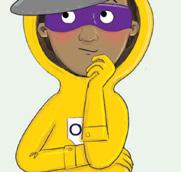

3 Find these words in the word search.




bsedqpyezuwkwmu
smunzgfcvvspzif
xdcghbupxmkcchg
jfrdaqwijepkrtn
hvondraqttxbiae
alligatoraeighj

fosavourspryoam
varcbjmqghwauac
qyndijpxloplrdy
jpyoesgfgrqtzee
bcfdarslbkveqvs
eokfksxocpxrioy
pvthtokfrmlabus
tefclnfqnectarp




lraxvzdkctknuzj
alligator rigour
scissor
savour order sugar
devour nectar alter guitar metaphor cover
The suffix -ion is used to form nouns from verbs. For instance, the verb ‘erode’ becomes the noun ‘erosion’ and the verb ‘convert’ becomes the noun ‘conversion’.

If the base verb ends in d, de or se, replace these letters with s and then add the suffix -ion. intrude | intrusion expand |









If the base verb ends in ss, just add the suffix -ion. compress | compression obsess | obsession impress




1 Read the base verbs in the first column of the table on the next page. Underline the grapheme that represents the last phoneme in each verb. Using the rules above, change each verb to a noun by adding the suffix -ion, and write a sentence using that word. You may use a dictionary to help you. The first one is done for you.





collide I heard the sound of screeching car tyres immediately before the collision invade exclude progress comprehend include confuse confess



2 Write the base verb for each of the nouns. You may use a dictionary to check the spelling of the verbs.





Noun with -ion suffix Base verb


conclusion
erosion division explosion decision discussion revision
extension
Now try this unit’s ‘Bringing it together’ activity, which your teacher will give you.
is a new word made out of two words joined together. The words ‘sun’






A compound word is a new word made out of two words joined together. The words ‘sun’ and ‘shine’ can be joined to make the compound word ‘sunshine’.

 by Emily Rodda
by Emily Rodda
Burning ask, up

Burning with questions he could not ask, he followed the others up to the castle with his eyes on the ground. under rumbled overhead, and he could hear the hum of many voices. en he was stumbling through a doorway, and the noise was suddenly deafening.
1 Read the text above and find words in it to complete the table.

A one-syllable word ending with a /z/ phoneme

A disyllabic word starting with a consonant digraph


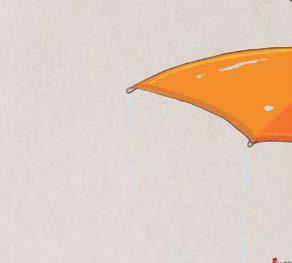

A word rhyming with ‘grumbled’
All multisyllabic words with a short /e/ phoneme
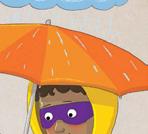

Two words … with three syllables with /d/ as the third phoneme starting with an unvoiced /th/ phoneme with an /oi/ diphthong that are compound words with five phonemes with a schwa as the fourth phoneme


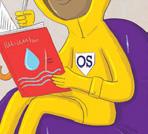



Tip followed one
If the first syllable of a disyllabic word has a short vowel graph followed by one consonant letter, it is common for the medial consonant letter to be doubled. This is called a medial consonant doublet

1 Circle the correctly spelled disyllabic words in the table, then write the correct word in the third column. Underline the grapheme that represents the short vowel in the first syllable of each word. The first one is done for you.
Circle the correct word Write the correct word Circle the correct word Write the correct word
dribble drible dribble narow narrow
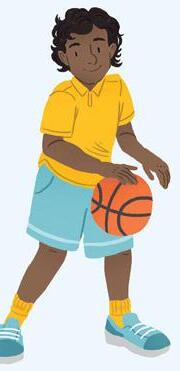
shufle shuffle torrent torent
bafle baffle botle bottle
carry cary ripple riple
gramar grammar buter butter
hoble hobble wobble woble
current curent
2 Choose three words you wrote in the last activity. Write a descriptive sentence for each.

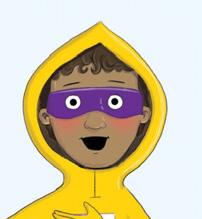
1 Read the spelling rules, which describe how the suffix -ion can be used to form nouns from verbs





If the base verb ends in d, de or se, replace these letters with s and then add the suffix -ion. suspend | suspension collide | collision confuse | confusion





If the base verb ends in a consonant followed by t, just add the suffix -ion. instruct | instruction contort | contortion concoct | concoction
If the base verb ends in a vowel followed by t, replace the t with ss and then add the suffix -ion. emit | emission commit | commission admit | admission
If the base verb ends in te, drop the e and then add the suffix -ion. create | creation inflate | inflation concentrate | concentration
If the base verb ends in be, replace be with pt and then add the suffix -ion. inscribe | inscription prescribe | prescription subscribe | subscription


If the base verb ends in ce, replace the e with t and then add the suffix -ion. induce | induction deduce | deduction produce | production
If the base verb ends in ss, just add the suffix -ion. depress | depression express | expression impress | impression








the




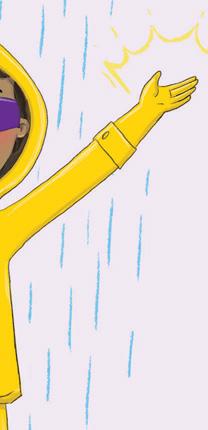
construct reduce pollute permission erode





2 Using the spelling rules about the suffix -ion, find the matching verbs nouns in the words and write them in the table. Use the example to help you. progression erosion construction progress
3 Choose one of the nouns formed with the suffix -ion and one of the base verbs from the last activity. Use the noun in a sentence. Then write a new sentence using the base verb instead.


Now try this unit’s ‘Bringing it together’ activity, which your teacher will give you.Verb Noun Verb Noun
1 Think of some interesting words you know from a subject you’re learning about in class, such as geography, maths, or health and physical education. Find some words from this topic to complete the tables below and on the next page.
Three one-syllable words
you know from


Two four-syllable words
Three words with five phonemes
Three words with eight phonemes

A disyllabic word that ends with a consonant digraph
A disyllabic word with an accented final syllable

Two words that rhyme with a subject-specific word of your choice
A word with a schwa in the final syllable with an /oi/ diphthong with a long /o/ phoneme that ends with a vowel phoneme with a consonant digraph for the third phoneme
Subject word:
Rhyming words:
A word …
that starts with a consonant blend with a vowel digraph with a voiced /th/ phoneme with an unvoiced /th/ phoneme


1 Scan some books you are reading to find words with the /oi/ diphthong such as ‘employ’ and ‘rejoice’. You can also think of other words you already know with this phoneme. Complete the table below.
Challenge yourself by including multisyllabic words in the table.
Words with oy in the initial accented syllable

Words that end with oy
Words that end with oin
Words that end with oice
Words that end with oil
Words that end with oid
Other words with the /oi/ diphthong
2 Choose two of the words you wrote in the table above. Use them to write a creative sentence.
3 Choose ten words from activity 1 on the previous page. Use the words to create your own word search then invite another student to complete it.
Consider adding prefixes or suffixes to some of your chosen words.



Words to find in the word search:






The suffix -ation can be used to form nouns from verbs. For example, the noun ‘reservation’ can be formed from the verb ‘reserve’.
If the base verb ends in y, it is common to replace the y with ic and then add the suffix -ation. imply | implication multiply |



If the base verb ends in re, ve or se, it is common to remove the e and then add the suffix -ation. reserve | reservation expire | expiration improvise | improvisation
1 Using the spelling rules about the suffix -ation, find the matching verbs and nouns in the words and write them in the table. One has been done for you.
magnification classification
identify identification preparation conserve
conservation simplification prepare simplify


organisation
inspiration

organise magnify inspire classify
prepare preparation
2 Choose one of the nouns formed with the suffix -ation and one of the base verbs from the last activity. Use both of these words in a sentence.
Now try this unit’s ‘Bringing it together’ activity, which your teacher will give you.Verb Noun
1 Think of some interesting words you know from a subject you’re learning about in class such as science, maths, music or history. Find some words from this topic to complete the table below and on the next page. One is done for you.
Three words with seven phonemes

Three words with eight phonemes
Three words with nine phonemes
A disyllabic word with an unaccented final syllable

A disyllabic word with an accented final syllable
A disyllabic word that ends with a consonant digraph
A multisyllabic word with a schwa in the first syllable
Two words that rhyme with a subject-specific word of your choice
A word with more than four syllables that has the same phoneme twice with an /oi/ diphthong with a long /o/ phoneme
Subject word:
Rhyming words:
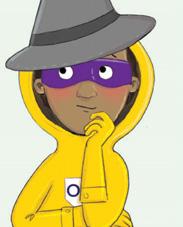
A word … that ends with a vowel phoneme with a consonant digraph for the third phoneme that starts with a consonant blend that ends with a consonant blend with a vowel digraph with a /z/ phoneme with a /s/ phoneme

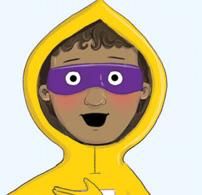
1 Choose ten words from the last activity. Use the words to create your own word search then invite another student to complete it.
Consider adding prefixes or suffixes to some of your chosen words.
Words to find in the word search:

2 Scan some books you are reading to find words such as ‘ground’ with the phoneme /ow/, as in ‘how’. You can also think of other words you already know with this phoneme. Complete the table.

Words ending in ow

Words ending in own
Words ending in ower
Words ending in ount
Words ending in ounce
Words ending in ouse
Words ending in oud


Words ending in ound
You are



for
The suffix -ise means ‘to cause’ or ‘to become’. This is the way the suffix spelled in Australian and British English. The Standard American spelling for this suffix is -ize. You might notice that some words are spelled differently if you are reading something from the United States or Canada.


1 Read the words in the first column of each table below and on the next page and write the base word they are formed from. The first one has been done for you.

If the base word ends in e or y, drop the e or y and add the suffix -ise. satire | satirise accessory | accessorise category | categorise



2 Choose one word with a suffix from the table above and write a sentence using that word.

An affix is a prefix or suffix that can be added to a base word. An affix always counts as a morpheme because it is a part of a word that carries meaning. Some base words can form new words with more than one affix. The word ‘unbelievably’ has three affixes: the prefix un- and the suffixes -able and -ly.

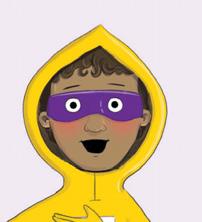

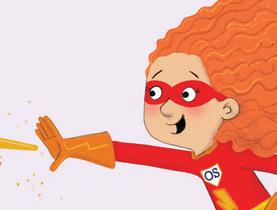



3 Build as many new words as you can by adding affixes to the base word ‘character’. Some of the new words will have one affix and others will have several affixes.


Now try this unit’s ‘Bringing it together’ activity, which your teacher will give you.
1 Scan a book you are reading to find interesting or unusual words to complete this table. One is done for you.
Three disyllabic words


Two three-syllable words
Two four-syllable words
A five-syllable word
A multisyllabic word with two schwas
Three words with eight phonemes
Three words with nine phonemes


A disyllabic word that ends with a consonant digraph
A disyllabic word with an unaccented final syllable
A disyllabic word with an accented final syllable
A word with a schwa in the third syllable
Two words that rhyme
A word
with more than ten phonemes with the long /oo/ phoneme with the short /oo/ phoneme
that ends with a vowel phoneme
with a consonant digraph to represent the third phoneme
that starts with a consonant blend
that ends with a consonant blend with a vowel digraph
1 Scan a book you are reading to find words with the /f/ phoneme, as in ‘feet’. You can also think of other words you already know with this phoneme. Complete the table.
f feather
ff gruff
ph photosynthesis
gh rough
2 Choose ten words from the last activity. Use the words to create your own word search then invite a classmate to complete it.
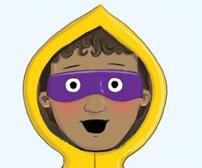
Consider adding prefixes or suffixes to some of your chosen words.



Words to find in the word search:


Some prefixes are partially absorbed (or assimilated) into a base word. This happens when the last letter of the prefix is replaced by the first letter of the base word. The table lists some prefixes, and explains how they are assimilated.
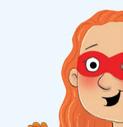


1 Complete the table on the next page. You may use a dictionary if you are not sure what a word means.

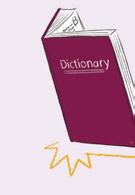
Prefix Base word Word with affix Prefix Base word Word with affix in- legal illegal com- note com- league colleague in- rational ad- prove approve in- mature com- respond ad- count in- logical com- relate ad- claim com- lapse ad- praise in- responsible in- mobile ad- firm
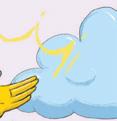





2 Choose four words that you wrote in the table above. Write a sentence for each one.

Now try this unit’s ‘Bringing it together’ activity, which your teacher will give you.
1 Scan a book you are reading to find interesting or unusual words to complete this table. One is done for you.
A word with five syllables

A multisyllabic word with two schwas
A word with ten phonemes




A disyllabic word that ends with a consonant digraph
A disyllabic word with an accented final syllable

A multisyllabic word with a schwa in the third syllable
A multisyllabic word with a long /e/ phoneme
Two words that rhyme
A word … with three different vowel phonemes that ends with a vowel phoneme with a consonant digraph to represent the third phoneme that ends with a consonant blend
1 Choose ten words from the last activity. Use the words to create your own word search then invite a classmate to complete it.
Why not try adding prefixes or suffixes to some of your chosen words?


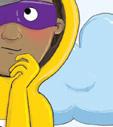



Words to find in the word search:


2 Scan a book you are reading to find words with the /g/ phoneme, such as ‘go’ and ‘ghee’. You can also think of other words you know with this phoneme. Complete the table.


g girl
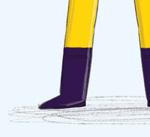
gg smuggle
gh gherkin
gue plague



1 Use the word matrix below to build as many new words as you can by adding affixes to the base word ‘form’. Some of the new words will have one affix and others will have several affixes.
form -s

2 Now create your own word matrix. First, select a base word. List possible prefixes and suffixes that could be added to that base word. Then list as many words with affixes as you can think of.
Prefixes Base word Suffixes New words



Now try this unit’s ‘Bringing it together’ activity, which your teacher will give you.
accented syllable
the syllable in a word that has the strongest emphasis the first syllable in ‘apple’ and the second syllable in ‘believe’ adjective a word that tells us what something is like small, tall, funny
base word
the smallest part of a word that is also a word on its own the word ‘jump’ in ‘jumping’ blend speech sounds that join together in a word
consonant
/st/ is a blend in the word ‘stop’
a speech sound made by blocking some air with your lips, teeth or tongue
/b/, /l/, /z/, /v/ consonant digraph
two letters representing one consonant sound
sh, ch, th
digraph
diphthong
two letters representing one phoneme
sh, ch, oo, ee, ie
a kind of long vowel sound that you make by moving your mouth in two ways
/oi/ in ‘boy’, /ow/ in ‘cow’
disyllabic word
etymology
a word with two syllables
monster (mon-ster), sunshine (sun-shine)
the study of where words come from and how they change over time
the word ‘pizza’ comes from a Latin word and an Italian dialect word meaning to clamp or stamp
graph one letter representing one phoneme
grapheme
homophone
b, w, o
a letter or group of letters representing one phoneme
a, sh, tch
a word that sounds the same as another word but looks different and has a different meaning
eight, ate
medial in the middle. A medial phoneme is a speech sound in the middle of a word. This can be a medial vowel or a medial consonant
medial consonant doublet
/o/ is the medial phoneme in ‘dog’
a doubled consonant letter in the middle of a word
bb in ‘bubble’
morpheme the smallest unit of meaning in a word
multisyllabic word
‘jumped’ has two parts with meaning (jump and -ed)
a word with more than one syllable
chamber (cham-ber), trampoline (tram-po-line)
noun a word that is a name for something, such as a person, place, animal, thing or idea
Ali, school, cat, ball, age, protection
the smallest speech sound you can hear in a word the word ‘boot’ has three phonemes: /b/, long /oo/ and /t/ plural a word for more than one thing
phoneme
‘hats’ is the plural of the word ‘hat’
prefix letters that go at the beginning of a word to make a new word un in ‘unhappy’ means ‘not’ (un + happy = not happy)
quadgraph
four letters representing one phoneme eigh in ‘eight’
rime the vowel and other speech sounds at the end of a syllable ig represents the rime in the word ‘big’

r-influenced vowel a vowel that sounds different because it is followed by the letter r phoneme /er/ in ‘mermaid’, /air/ in ‘pear’


schwa
an /uh/ sound in a word the a in ‘balloon’ and the our in ‘colour’ represent an /uh/ sound suffix letters that go at the end of a word to make a new word the -ful in ‘powerful’ means ‘full of ’, so ‘powerful’ means ‘full of power’
syllable a part of a word that feels like a beat and has a vowel sound ‘weekend’ has two syllables (week-end)
syllable juncture the place in a word where two syllables meet in the word ‘return’, the syllable juncture is between the e and the t
tense the way a word is written that shows whether something is in the past, present or future
‘I walked’ is in past tense, ‘I walk’ is in present tense, ‘I will walk’ is in future tense
trigraph
three letters representing one phoneme igh in ‘might’
unvoiced phoneme a sound made using your breath rather than your voice /th/ in ‘thunder’, /p/ in ‘past’, /s/ in ‘chess’ verb a word for something that happens ‘play’ is the verb in the sentence ‘I play chess.’
voiced phoneme a sound made using your voice /th/ in ‘that’, /b/ and /g/ in bag
vowel a sound that you voice with your mouth open and not blocked by your lips, teeth or tongue
a sound that you and not blocked by your lips, teeth or tongue

When you have finished the activities in each unit, think about how you feel about the work you have completed. Draw a if you feel confident using these ideas on your own.
Draw a if you feel you need to learn more.

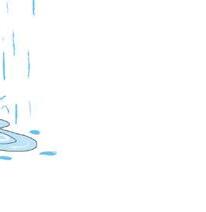
Draw a if you are not sure.
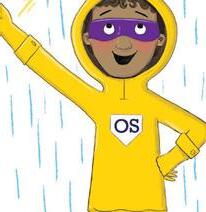

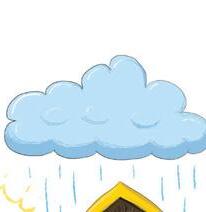

Oxford Spelling is an evidence-based, whole-school program supporting spelling development and best-practice classroom instruction. Planned and written by Dr Tessa Daffern, Oxford Spelling incorporates the latest spelling research into a flexible and practical classroom resource. This comprehensive series enables teachers to teach spelling generalisations and strategies sequentially and explicitly, and connect spelling knowledge to reading, writing and other disciplines.
The Student Books feature:
• complete coverage of the Australian Curriculum: English




• systematic exploration of words through phonology, orthography and morphology
• activities enabling students to learn spelling rules and generalisations


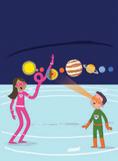
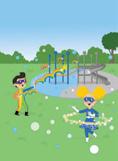
• excerpts from fiction and non-fiction literary texts that expand student vocabulary and nurture appreciation for reading and writing
• activities connecting spelling to relevant subject-specific vocabulary
• high-frequency words from the Oxford Wordlist
• exposure to rich vocabulary for spelling practice through dictionary activities

• links to‘Bringing it together’ activities, allowing practice and consolidation of phonological, orthographic and morphological skills
• a glossary of useful terms

• a self-assessment template.
The Oxford Spelling Teacher Handbooks provide complete support for differentiated implementation of the program in the classroom, along with clear guidance on supporting students’ spelling development. They contain:
• lesson plans for each unit in the Student Books
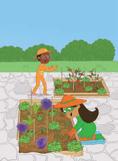
• answers to activities
• suggestions for differentiated instruction, including consolidation and extension activities
• recommendations for integrating children’s literature into spelling lessons

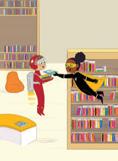
• a full glossary of spelling terms



• assessment guidance.
The Teacher Handbooks come with access to additional resources on Oxford Owl, including:
• mapping to the NSW, Victorian and Australian Curriculum: English curricula

• printable assessment templates
• flashcards for word-sorting tasks


• assorted templates for consolidation games and linguistic inquiry activities.
Oxford Owl is the home for Oxford Primary professional resources.
www.oxfordowl.com.au
ISBN 978-0-19-032614-2
9780190326142
